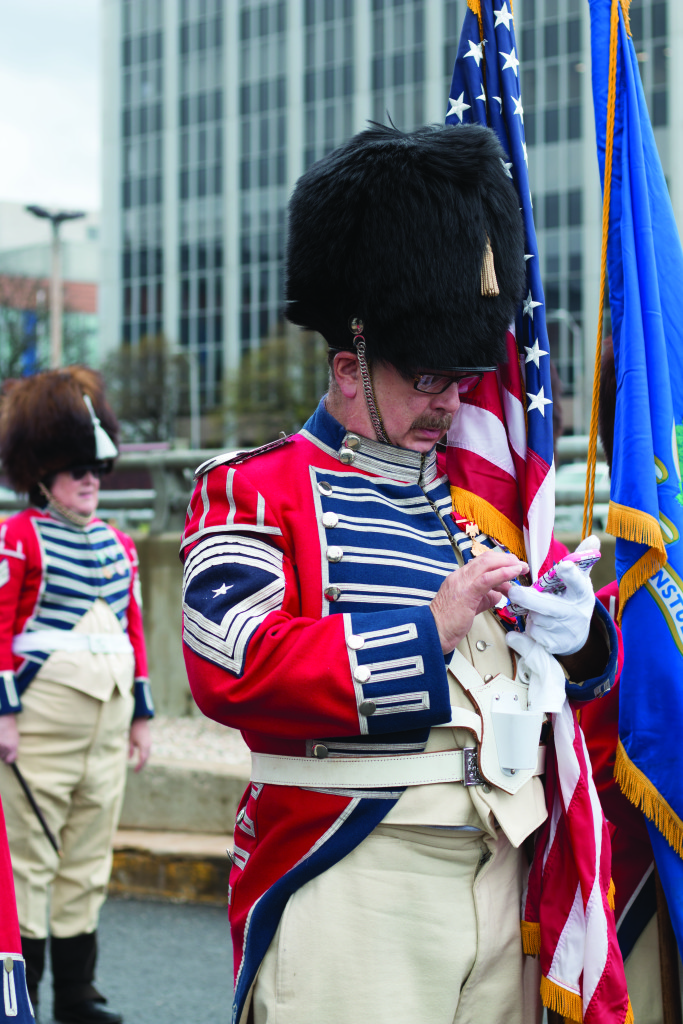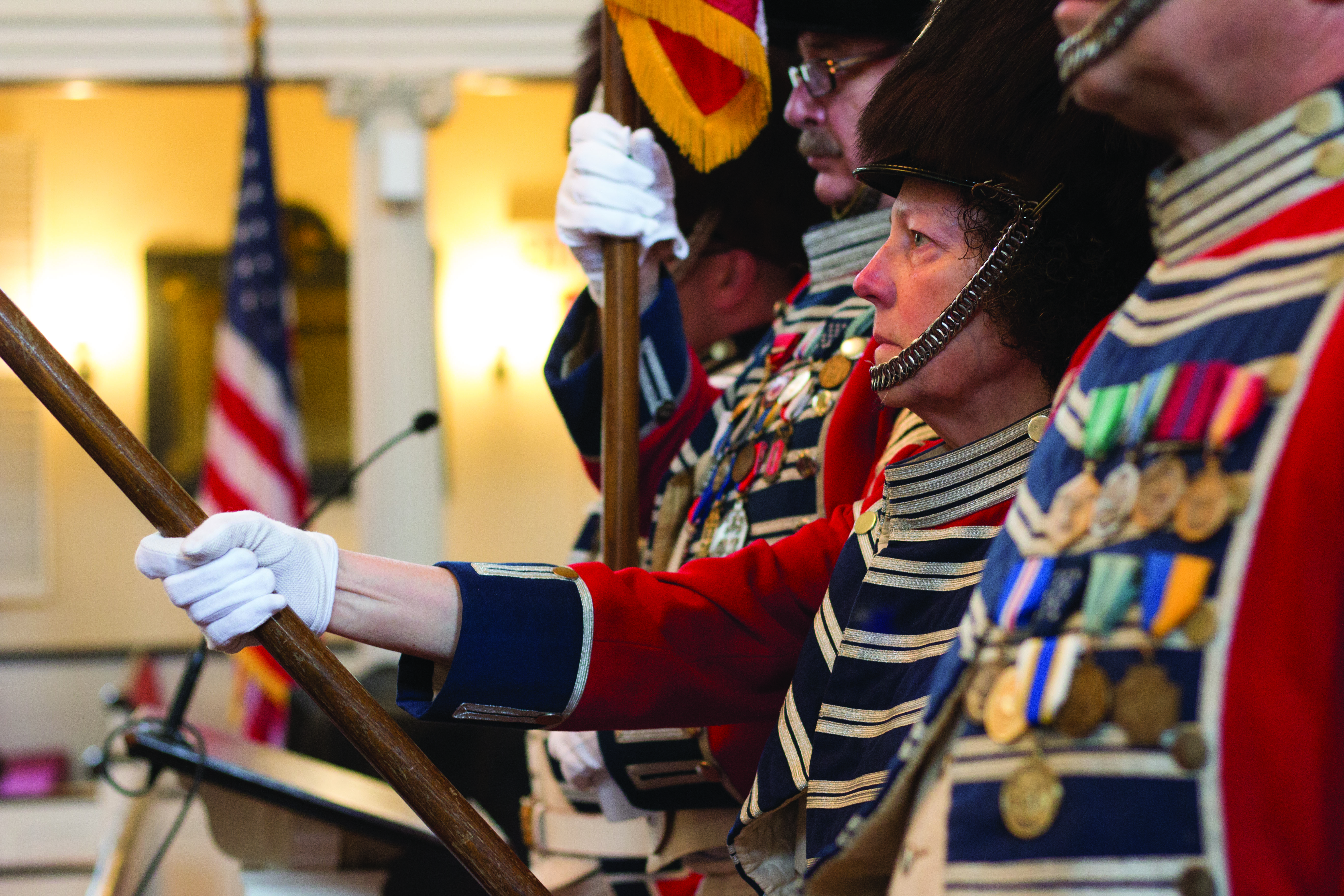
Seventy-five soldiers clad in knee breeches, scarlet waistcoats and either bearskin shakos or feathered chapeaux march three-by-three down the center of Church Street shouldering muskets and sabers. A fife-and-drum corps plays an authentic-sounding rendition of “Yankee Doodle.” A pair of police cars leads the cavalcade, while a third brings up the rear. All along the sidewalk, incredulous passersby stare or frantically unsheathe their iPhones from their pockets to capture on video what must look to them like a scene from the American Revolution — and that’s because it is.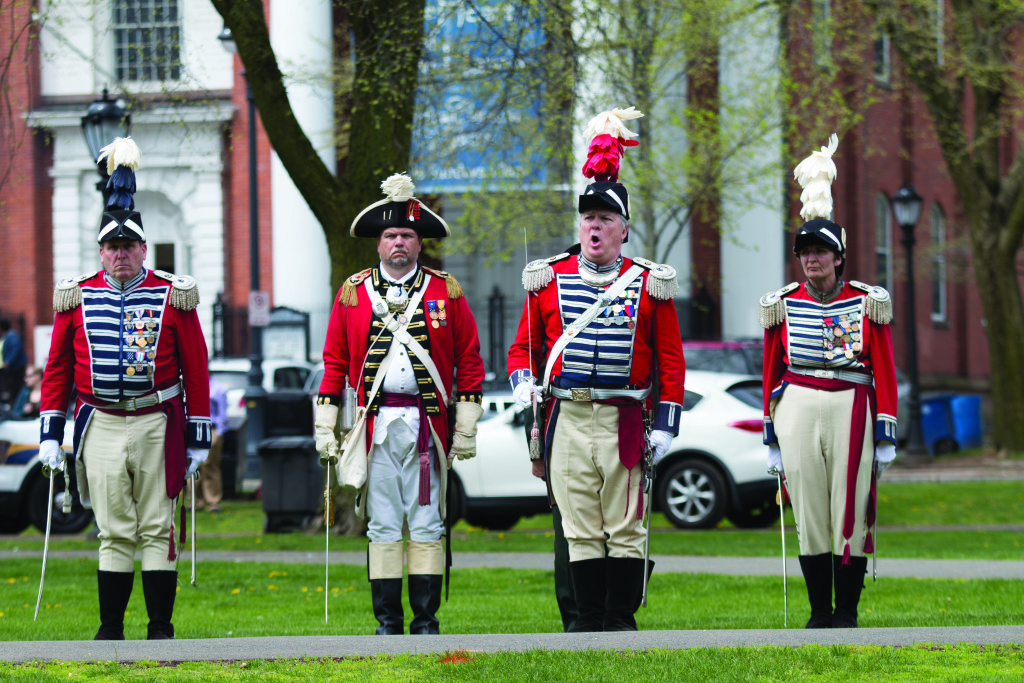
Today, New Haven celebrates the 241st anniversary of Powder House Day. These soldiers have gathered to re-enact the events of that day and to pay tribute to the patriotism of the Elm City’s first Revolutionary War hero, a businessman and militia captain who lived on Water Street: Benedict Arnold.
When word of the battles at Lexington and Concord reached New Haven on April 21, 1775, a town meeting voted to withhold support until news of further developments arrived. Disregarding that decision, 58 members of the 2nd Company Governor’s Foot Guard resolved to march on Cambridge, Massachusetts, where they would join the gathering colonial army. Without official authorization, though, the company would receive neither ball nor powder.
The following day, the soldiers — under the command of captain Benedict Arnold — stormed Beer’s Tavern, where the town selectmen were meeting, and demanded the keys to the New Haven Powder House.
Reluctant to act in open defiance of the king, the town’s selectmen demurred. Arnold, however, would hear no such equivocations.
“If the keys are not coming within five minutes,” he reportedly bellowed, “my men will break into the supply-house and help themselves. None but the Almighty God shall prevent me from marching.”
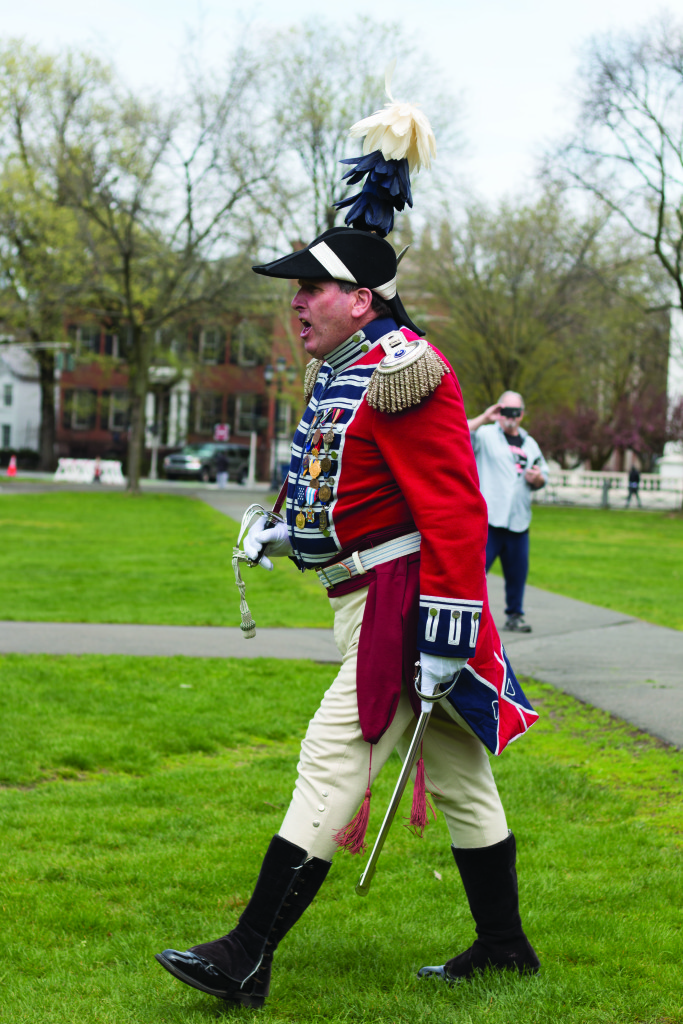
And none did. The selectmen surrendered the keys, the triumphant Arnold led his newly equipped men off to Cambridge, and the town of New Haven — against the more cautious sensibilities of its people — entered the American Revolution.
Since 1904, the Elm City has staged an annual re-enactment commemorating the heroics of Powder House Day and the courage of its champion. The volunteer soldiers of the 2nd Company — which has continuously existed since its 1774 establishment and which now fulfills a strictly ceremonial purpose as a Historical State Military Organization — perform the re-enactment of their forebearers’ deeds 241 years prior.
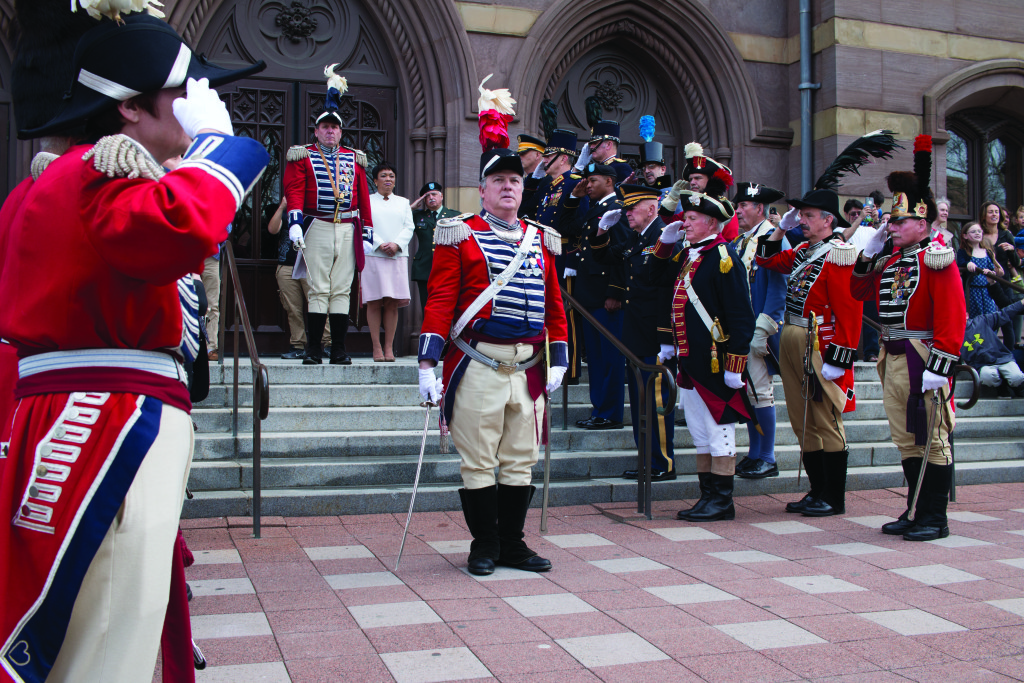
“It’s important for us as members of the foot guard, now 241 years later, to remember what these men did,” says Major Commandant Richard Greenalch, this year’s Benedict Arnold and an assistant deputy state’s attorney by day. “The men and women of the foot guard are just proud to commemorate what we think was important in New Haven’s history.”
In the nearly two-and-a-half centuries since its founding, the 2nd Company has undergone a number of changes. This Powder House Day, the company is joined by fellow volunteer soldiers hailing from all across the eastern seaboard, some of whom journeyed from as far as Charleston, South Carolina to participate in the festivities. In addition, the company now includes women such as Executive Officer Alice Cronin, Greenalch’s second-in-command. For Cronin, the event has become something more than just a historical re-enactment.
“[The different units] all usually show up this time of year [and] they all come to this event,” she says. “And the family and friends of all the members all show up for today as well.”
“Sort of like a reunion?” I ask.
“Exactly,” she says. “Exactly.”
At the corner of Church and Elm, the parade proceeds to Center Church on the Green, where Jonathan Edwards Jr., son of the eminent revivalist preacher Jonathan Edwards, class of 1720, gave Arnold’s men his blessing. After sitting for a sermon, the company circles back to City Hall.
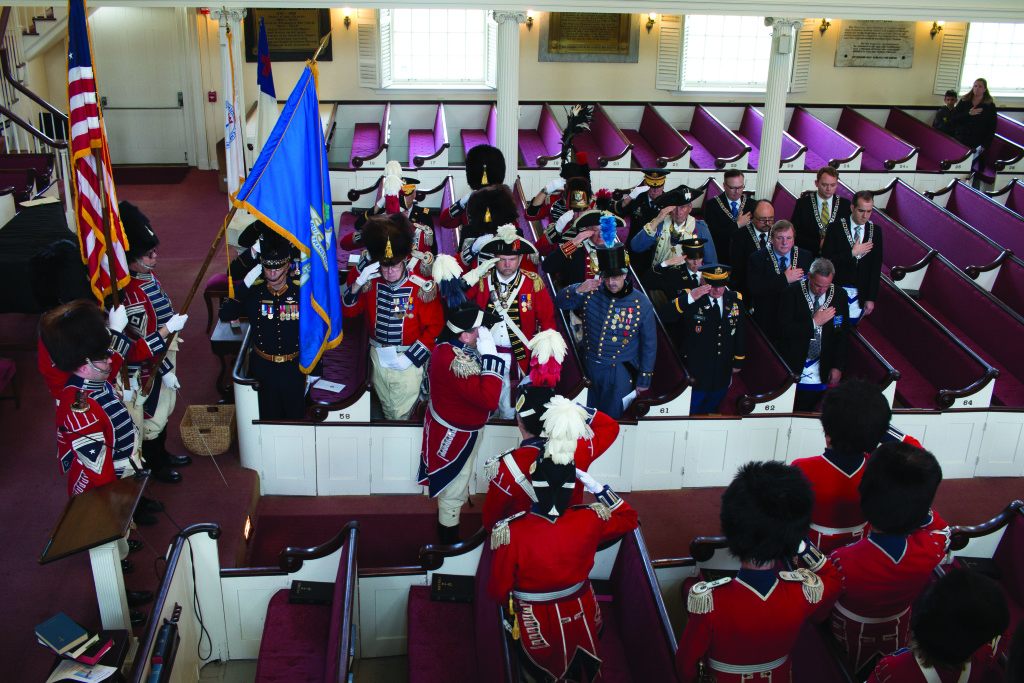
Then comes the re-enactment. Mayor Toni Harp sportingly recites her lines as a selectman in full character before presenting the keys to Greenalch. Across the Green, without warning, an artillery unit booms three times.
As Greenalch descends the steps of City Hall, he pauses to snap photos with excited children. For one day, Benedict Arnold — the man whose name is a synonym for “traitor” — is a hero.
“This is your parade,” Cronin shouts from below. “We can’t start without you.”
Greenalch takes his place at the head of the formation and the company marches back to the Green for the re-enactment’s final phase, the Battalion Review. After overseeing the review, he discharges his company.
The soldiers locate their friends and family in the audience and begin to disperse from the Green. Some return to their hotel rooms at the Holiday Inn to shower. A hungrier contingent heads for Buffalo Wild Wings, shakos and chapeaux, muskets and sabers in hand.
